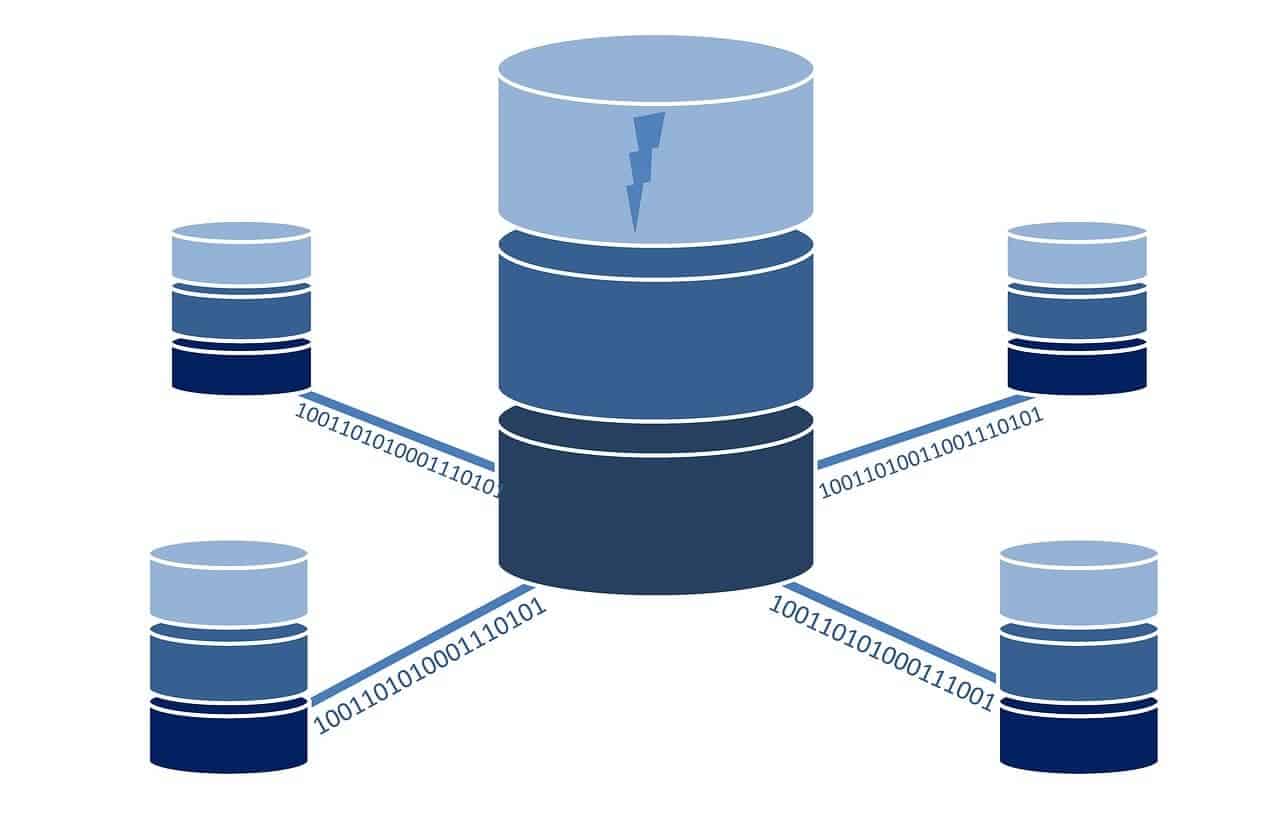The demand for hybrid database administrators (DBAs) has increased recently as businesses have looked to optimize their databases and streamline operations. By combining the skills of an Oracle DBA with those of a SQL Server DBA, organizations can benefit from having access to relational and non-relational data sources. As such, numerous advantages are associated with being a hybrid DBA that often outweighs any potential drawbacks.
Becoming a hybrid DBA presents an exciting opportunity for many professionals to expand their knowledge base and hone their technical abilities. With ever-evolving technologies driving industry standards, DBAS must stay up-to-date on best practices to remain competitive in the job market.
Expertise in multiple systems allows for greater flexibility when responding to customer demands or making decisions about infrastructure investments.
By leveraging the latest software tools available, DBAs can maximize efficiency while reducing costs and improving performance across various platforms. In addition, DBAs with SQL and Oracle skills are well-equipped to identify areas where improvements may be necessary and suggest innovative solutions that will enhance company productivity without sacrificing quality control or security measures.
Definition Of A Hybrid DBA:
A hybrid DBA is a database administrator specializing in SQL and Oracle databases. This individual has the technical knowledge to manage any data storage system, from simple single-user applications to large enterprise systems.
They are responsible for designing and implementing robust solutions that meet business objectives while protecting sensitive information from unauthorized access or manipulation. Hybrid DBAs have the skill set to create efficient back-end processes for automated operations and provide guidance on best practices for optimizing performance and scalability.
Hybrid DBAs possess a wide range of skills related to database management, including troubleshooting complex problems, planning capacity requirements, and understanding security protocols.
They also know about replication techniques, high availability configurations, backup strategies, and cloud computing platforms. As businesses move towards larger distributed datasets with ever-increasing complexity in their architectures, the demand for experienced hybrid DBAs continues to grow exponentially.
With these specialized skill sets quickly becoming essential components of most organizations’ IT departments, it is clear why having SQL and Oracle expertise is valuable for those looking to remain competitive in today’s job market.
Advantages Of Having SQL And Oracle Skills:
Hybrid DBAs are the dawn of a new database technology and development age. Their combination of SQL and Oracle skills makes them highly sought after by organizations looking to improve their data infrastructure. As such, having these two skill sets is an invaluable asset for professionals who wish to achieve career growth.
Firstly, possessing both SQL and Oracle knowledge opens up job opportunities that may not be available to those with only one set of skills. Companies now prefer hybrid employees because they can manage all their databases from one person, drastically reducing overhead costs and increasing efficiency.
Since most companies use both technologies, IT teams can only hire one individual for each system; instead, they can find someone with experience in both languages. It makes it easier for businesses to expand operations without increasing personnel costs significantly.
Moreover, remote work has become increasingly popular due to its flexibility and cost-effectiveness compared to traditional office environments. Therefore, many businesses are turning towards hiring freelance professionals or contractors who specialize in managing different databases remotely on a contract basis.
With their dual expertise in SQL and Oracle, Hybrid DBAs can take advantage of this growing trend while still enjoying the benefits of working independently at home or any other location they choose.
The advantages of being a Hybrid DBA are straightforward: having versatile skills gives you greater access to more jobs, allowing you to customize your workload according to your needs and reap the rewards of increased career mobility and freedom.
By taking control over your professional destiny through specialized knowledge about multiple database systems, you can unlock untold potential for yourself and open doors into exciting new realms within the IT world.
Job Opportunities For Hybrid DBAs:
Hybrid DBAs are in high demand, providing many job opportunities. These roles involve combining SQL and Oracle database management skills to create automated processes that save companies time and money. Specifically, hybrid DBAs can design databases, develop applications, generate reports, optimize performance, and maintain data integrity when dealing with large amounts of information stored across multiple systems.
The potential for career growth is significant due to the ever-evolving nature of technology and changing business needs. As more businesses move their operations online or adopt automation technologies, they will need experts who understand SQL and Oracle databases to manage their digital infrastructure efficiently.
Hybrid DBAs have a unique advantage over traditional DBAs because they possess knowledge on both topics; this makes them highly sought after by employers looking for individuals with deep technical expertise and problem-solving abilities.
With increasing demands in the industry, now is an excellent time to pursue lucrative job opportunities as a hybrid DBA. Transitioning into these positions provides an exciting opportunity to leverage existing experiences while developing new ones in today’s fast-paced technological world.
Requirements For Becoming A Hybrid DBA:
Becoming a hybrid DBA requires knowledge of both SQL and Oracle skills. Database management is a competitive field, so having expertise in both areas can give you an edge.
To be successful as a hybrid DBA, you need to have good problem-solving skills, excellent communication and interpersonal skills, strong organizational abilities, the ability to work independently or with teams, and experience working with relational databases.
You must also understand how to write complex queries using multiple languages, including PL/SQL and T-SQL. Knowing scripting tools such as Python will be beneficial for automating tasks efficiently.
Education and experience are often required for many job openings involving hybrid DBAs; however, some employers may consider candidates who need degrees and possess significant industry experience. Therefore it is important to emphasize any relevant certifications or specializations acquired during your career when applying for roles that require advanced database administration skills.
Demonstrating proficiency in various software packages such as Microsoft Access and Oracle Enterprise Manager will further enhance your resume.
In addition to technical qualifications, employers value soft skills like teamwork, creativity, analytical thinking, decision-making capabilities, customer service orientation, and time management capabilities in potential hires.
Organizations look for professionals who can diagnose issues quickly while consistently demonstrating professionalism – regardless of the situation. Demonstrating your ability to handle challenging situations calmly while keeping up with client demands by delivering results on time within budgetary constraints is essential.
Career Growth Potential:
Becoming a hybrid DBA is an attractive career path due to its growth potential. They possess SQL and Oracle skills, positions one as a highly sought-after professional in the industry, and employers looking to fill hybrid roles requiring expertise in multiple databases.
Companies know the need to be competitive by utilizing their data resources more efficiently, and having someone who can manage multiple database technologies puts them at an advantage. That opens up opportunities for those willing to take on these challenging roles and hone their existing skillset further.
At the same time, there is an ever-expanding job market for hybrid DBAs since organizations continue to demand experienced professionals who can work across multiple platforms. As businesses become increasingly reliant on technology, they recognize the importance of hiring personnel with specialized knowledge of different database technologies – making hybrid DBAs even more valuable in today’s fast-paced business environment.
With this increasing demand comes greater recognition and higher salaries; being a successful Hybrid DBA offers excellent potential for financial stability and long-term success. Transitioning into the next section about salary expectations, it’s clear that career advancement within the field comes with increased earning power.
Salary Expectations:
Salary expectations for a hybrid DBA are on the rise. As technology advances, so makes the demand for individuals with SQL and Oracle skillsets. According to recent surveys, salaries for senior hybrid DBAs exceed more traditional roles as they offer enhanced capabilities and greater control over databases. The following are some critical points regarding the salary expectations of a hybrid DBA:
- * A hybrid DBA’s salary is significantly higher than that of a traditional database administrator or programmer;
- * Salaries vary depending on experience level and job requirements;
- * The average yearly pay for a hybrid DBA ranges from $100,000 to $150,000 per year;
- * Salary trends indicate that employers in certain regions may be willing to pay even more for qualified candidates.
The earning potential of a skilled hybrid DBA is undeniable – providing an attractive opportunity to those looking to pursue this career path.
However, prospective DBAs must stay current with industry trends and database-related technologies to maximize their earning potential. Doing so helps ensure that they remain competitive within the ever-evolving IT world.
With hard work and dedication, there is no limit to what one can achieve as a hybrid dba – paving the way toward financial freedom and success.
Benefits Of Working Remotely As A Hybrid DBA:
Remote working offers hybrid DBAs a unique opportunity to grow their career and increase their salary expectations. Hybrid DBAs can leverage their expertise as SQL and Oracle professionals to work from anywhere worldwide, day or night. This type of flexibility allows for greater job satisfaction and opens up new opportunities for those looking to further their database management skills.
Remote working provides hybrid DBAs with improved collaboration capabilities and access to global resources that can help hone their skillset even more.
By communicating with colleagues from multiple locations, they better understand how different databases operate in various countries while having access to tools and technologies that might otherwise be unavailable due to geographical barriers.
Being able to take on projects outside of one’s own country broadens a hybrid DBA’s portfolio and makes them much more marketable when seeking employment elsewhere.
The freedom afforded by remote working is an attractive prospect for many aspiring hybrid DBAs looking to enhance their careers and salaries.
It allows them to develop professionally while still retaining some control over their lives, something many traditional office jobs cannot offer. As such, it has become increasingly popular among those interested in pursuing this line of work as it ensures that they remain competitive tech industry.
Education And Training Options For Becoming A Hybrid DBA:
The road to becoming a hybrid database administrator starts with education. A successful career in the field requires knowledge of SQL and Oracle and the skills to work with each. There are several avenues one can take to acquire this training:
- 1. Database certification programs provide an intensive course of study designed to give individuals the tools to become proficient in database administration and management. Programs typically involve database development, design, security, storage optimization, and maintenance courses.
- 2. Hybrid DBA training allows professionals to develop their expertise in both SQL and Oracle simultaneously through live instruction or self-study options. Courses cover query writing, data modeling, object-oriented programming, and database optimization techniques.
- 3. SQL/Oracle courses offered by colleges and universities allow students to gain hands-on experience working with databases in natural world settings while developing essential problem-solving skills for managing large datasets efficiently and accurately. Many certificate programs require students to complete core courses before taking courses specific to SQL or Oracle systems.
From formalized learning methods such as certification programs or degree tracks to tailored online classes that hone particular skill sets, plenty of educational opportunities are available when pursuing a career as a hybrid dba.
With these resources, aspiring dbas have access to many options, enabling them to confidently and effectively establish themselves within the industry on their way toward success.
As automation continues gaining more traction within database management, it becomes increasingly important for professionals working in this space to stay abreast of technological advances – something that can be accomplished through frequent engagement with comprehensive learning experiences geared toward expanding one’s knowledge base over time.
The Role Of Automation In Database Management:
Automation has become a crucial part of database management in recent years, and its role is only increasing. Automation allows databases to be managed more efficiently, with fewer manual processes, while reducing the risks associated with human error.
By automating certain aspects of administration and maintenance, hybrid DBAs can free up valuable time to optimize performance or create new strategies. This increased efficiency makes automation an invaluable tool in any DBA’s arsenal.
The future of database management will undoubtedly include even more automated tools and processes as technology evolves. Automated solutions are becoming increasingly sophisticated and provide new opportunities for improved accuracy and scalability – making them critical components of any successful organization’s IT strategy.
As such, hybrid DBAs must stay ahead of these trends by continually exploring the most cutting-edge technologies on the market today. Doing so will help ensure their current success and prepare them for what lies ahead in database management.
Preparing For The Future Of Database Management:
As database management evolves, hybrid DBAs are becoming increasingly in demand. According to a recent survey conducted by McKinsey & Company, over 80% of companies now employ hybrid DBAs with expertise in SQL and Oracle databases. That demonstrates just how important it is for professionals within this field to understand multiple technologies when preparing for the future of database management.
For those entering into the profession today, there has never been a better time to become a hybrid DBA. Not only does know two distinct platforms offer more job opportunities and higher salaries than traditional single-platform DBAs, but automation also allows for faster problem-solving and greater efficiency.
Automation tools allow for quick installation and configuration processes and efficient monitoring capabilities that can help identify potential problems quickly and accurately. In addition, these automated techniques make it easier to manage larger volumes of data without needing additional personnel or resources.
Gaining experience using various tools such as SQL Server Management Studio (SSMS), Oracle Enterprise Manager (OEM), and Microsoft Access will give you an edge when competing for job roles requiring mastery of multiple databases.
Having a deep understanding of all aspects related to managing different types of databases—including backup strategies, performance tuning, hardening security measures, scalability improvements, and disaster recovery plans—will be essential to meet the demands required from employers who seek out skilled hybrid DBAs capable of meeting their needs now and far into the future.
Conclusion:
Hybrid database administrators are a valuable asset to any organization, as they possess the skills to manage and maintain SQL and Oracle databases efficiently. The most significant advantages of having such a skill set range from increased job opportunities and career growth potential to working remotely or pursuing further education in automation technologies.
By mastering these skills, hybrid DBAs can ensure their place in an ever-changing industry increasingly reliant on technology.
The future of database management lies firmly within the capabilities of hybrid DBAs that have embraced automation technologies. As more organizations move away from manual processes, those involved with database maintenance must develop new strategies for managing large amounts of data quickly and cost-effectively. This knowledge brings greater job security, better salaries, and higher satisfaction.
To stay ahead, hybrid DBAs must continue learning about emerging technologies while understanding how they will impact their current practices.
This knowledge, combined with the right experience, provides Hybrid DBAs with invaluable insight into what is needed to help businesses succeed in today’s digital world — making them one of the most valued IT team members.

























